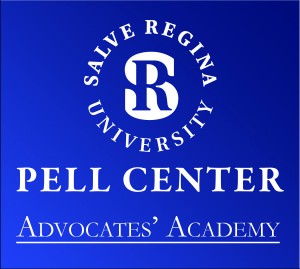Pell Center Launches New Program for Policy Advocates
The Pell Center’s Advocates’ Academy seeks to help nonprofit policy advocates create a more engaged and informed public dialog.
NEWPORT, R.I. − This fall, the Pell Center at Salve Regina University will launch the Advocates’ Academy, a skill- and coalition-building program for nonprofit communicators.
The Advocates’ Academy is designed to help policy advocates in both the public and nonprofit sectors who seek to more effectively engage and inform audiences, including the general public, funders, opinion leaders, and policy makers. Communicators from a range of important nonprofit organizations around the state will meet once a month throughout the Fall semester to develop their skills and capacity in this critical area, to practice new approaches in a comfortable setting, to develop ties with a community of advocates working on the same goals, and to hear from experts in both the theory and practice of effective framing.
The Advocates’ Academy promotes the Pell Center’s mission to create more informed and engaged dialogue, among both the public and leaders, about critical issues and policy choices facing our society. More specifically, the Advocates’ Academy falls under the umbrella of the Center’s “Informed Democracy” program, which seeks to promote broader understanding of some of the key ideas that underlie public policy discussions in areas such as sustainability or the role of government in the economy.
The program is led by Pell Center Senior Fellow Joseph Grady, Ph. D., who has spent more than fifteen years helping advocates find better communications approaches with the firms he cofounded, Cultural Logic and the Topos Partnership.
“Even the best communicators can hit a wall where they find it hard to get through to audiences that don’t share the same knowledge and background,” said Grady. “That’s where the training in this Advocacy Academy starts. We’ll focus on the best ways to reach broader audiences, and how to offer a clearer, more compelling picture of important policy choices. In the end, these skills are at the heart of effective advocacy.”

